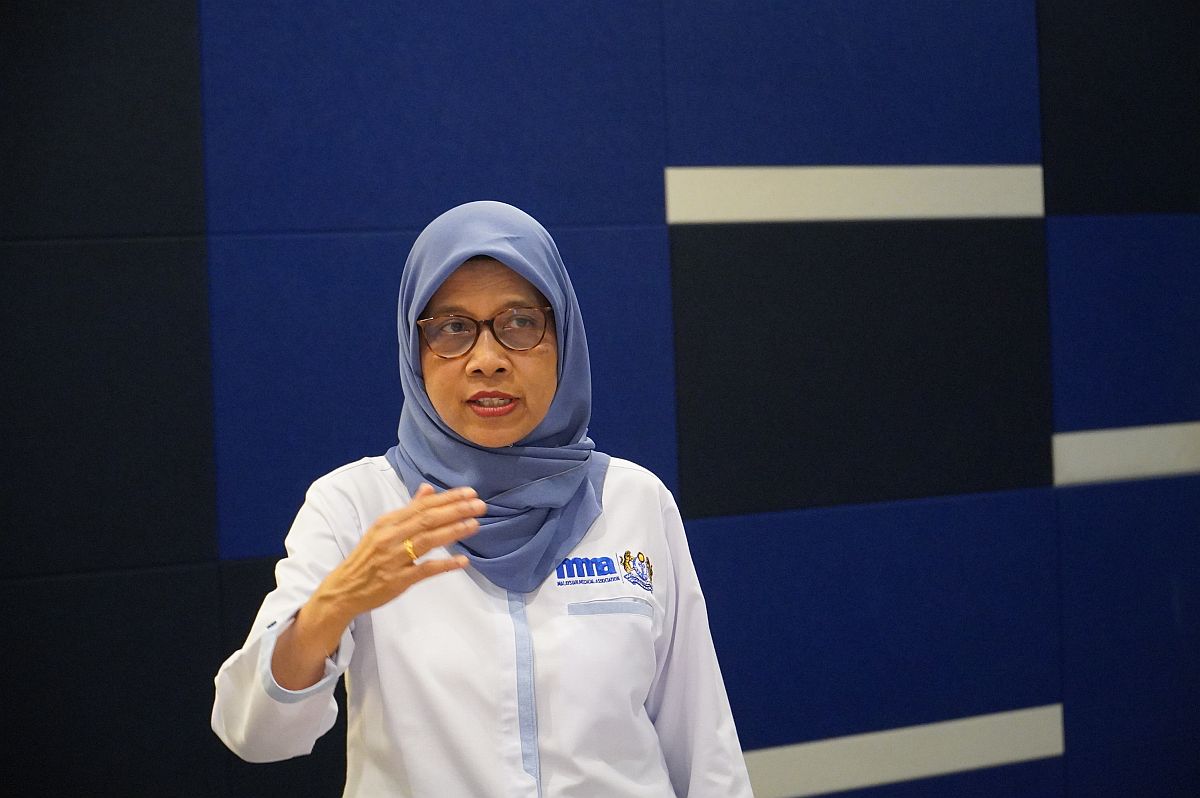KUALA LUMPUR, Jan 9 – The Malaysian Medical Association (MMA) expressed support today for the diversion of nurses from specialist clinics to wards to tackle a dire nursing shortage in government hospitals.
The country’s largest doctors’ association said the reassignments may significantly reduce the workload in some hospital wards caused by a maldistribution of health care workers that was previously highlighted by the MMA.
“We welcome this effort by the MOH and hope for its smooth implementation. We hope the positions vacated as a result of the reassignments will be promptly filled to prevent any disruptions to services. The importance of training must also be emphasised,” MMA president Dr Azizan Abdul Aziz said in a statement today.
CodeBlue reported yesterday the MOH’s goal to relocate “100 per cent” of nurses from specialist clinics – excluding those in clinical areas like obstetrics and gynaecology (O&G) and paediatrics – to wards, due to a severe shortage of nurses in public hospitals and insufficient nursing graduates.
Nurses in specialist clinics would be substituted with medical assistants, according to documents sighted from Health director-general Dr Muhammad Radzi Abu Hassan’s November 27 meeting with MOH’s medical assistance services branch and the nursing division.
When asked if MMA believes that nurses and medical assistants are interchangeable jobs, Dr Azizan simply told CodeBlue to read the doctors’ group’s entire statement.
In a statement to CodeBlue earlier today, the MOH described the reassignment of nurses from clinics to wards – without acknowledging the current nursing shortage – as a “strategic mobilisation” of the health care workforce, where nurses and medical assistants would be placed “according to their core competency, complementing each other”.
The MOH also used the phrase “skill-matched staffing” in its three-page statement.
A senior nurse, however, has told CodeBlue that the reassignment of specialist nurses to wards may pose more challenges for certain specialist clinics compared to others, as nurses and medical assistants are trained differently.
“Medical assistants are primarily there to assist, whereas nurses handle a variety of tasks, including preparing patients’ documents, attending to bedridden patients, conducting immunisations, administering medication – many of which medical assistants are not trained for,” said the nurse.
MMA today acknowledged that there may be initial challenges in addressing specialty-specific demands, but expressed confidence in the MOH’s ability to overcome these over time.
“We believe data-driven decisions and real-time monitoring will be the way forward for effective planning of workforce placement. The MMA believes that increased efficiency and productivity can be achieved through a digital system enabling data driven decisions,” Dr Azizan said.
“Digitalisation will be crucial for both immediate and future planning of public health care human resources in ensuring health care services cater to community needs.
“Health care services should be planned in response to the needs of the population; not determined by the size of budgets or the number of posts created.”








